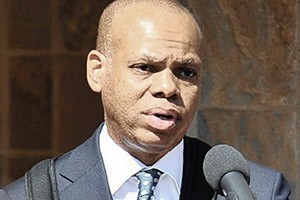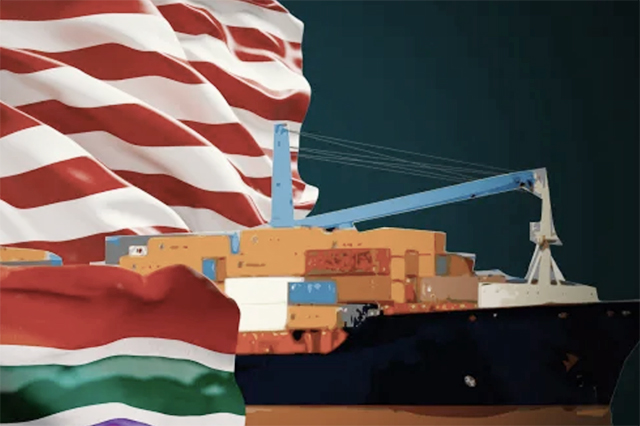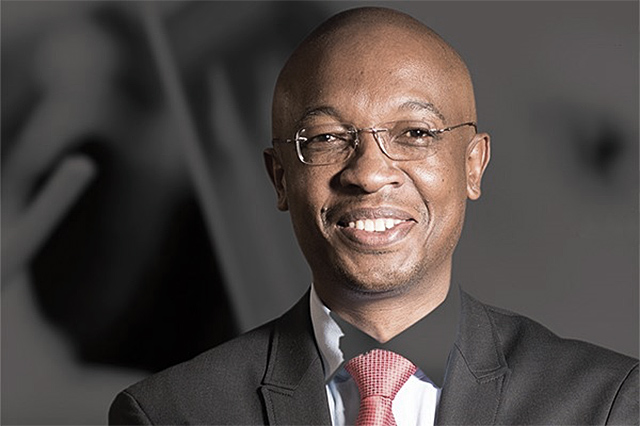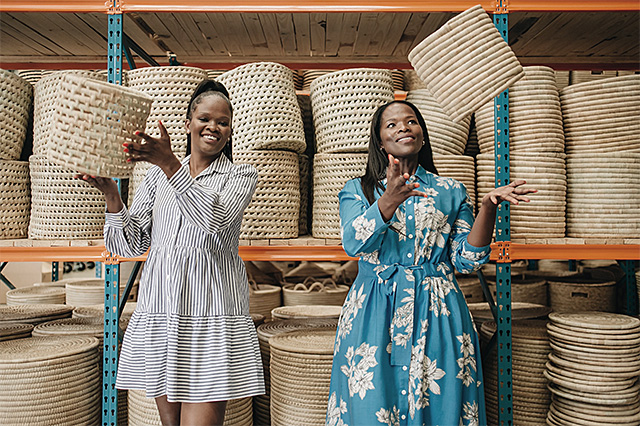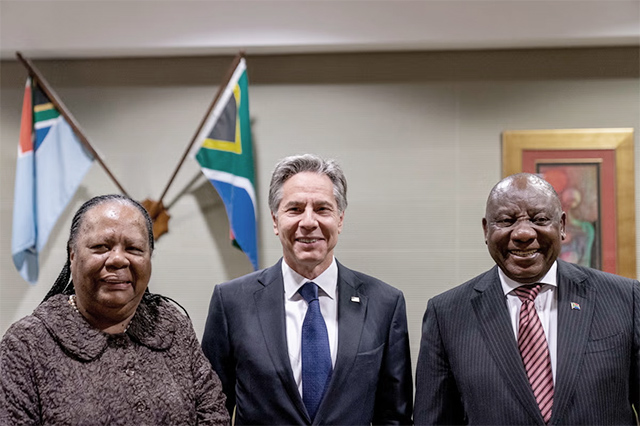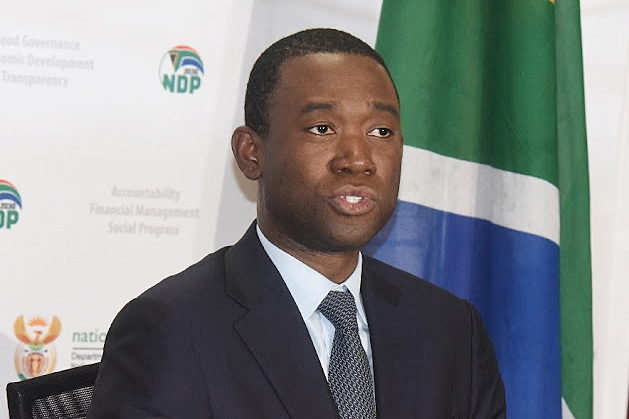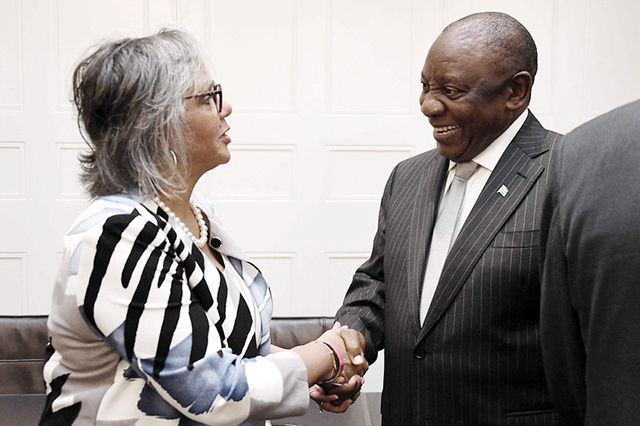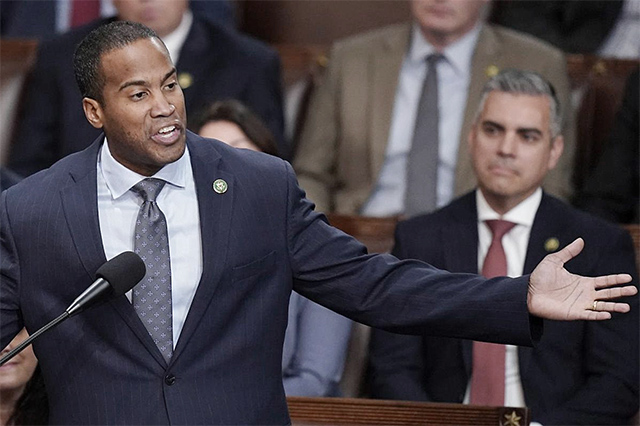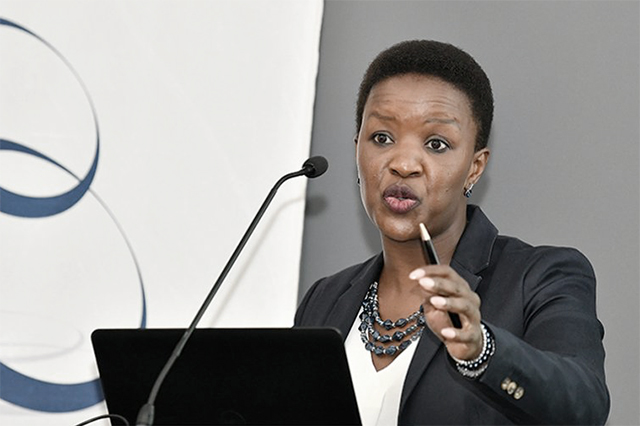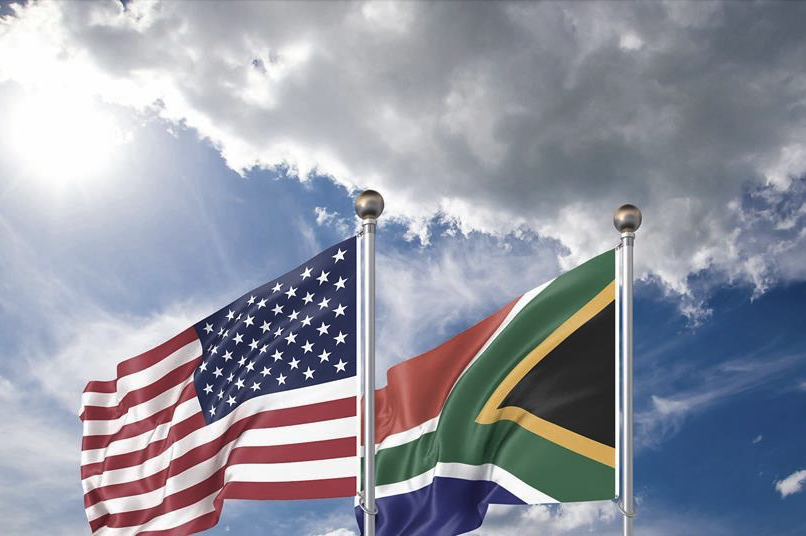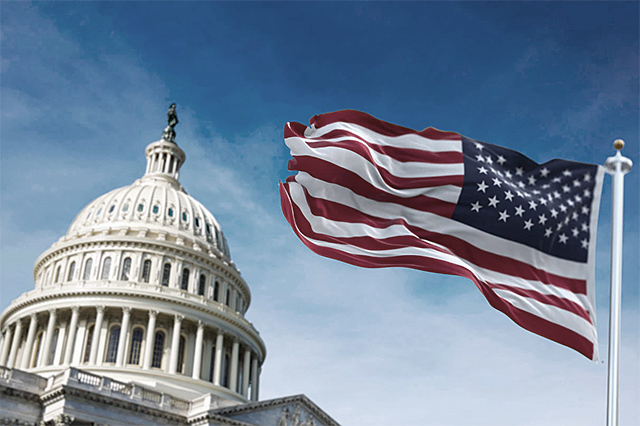Looking beyond AGOA
“I cannot tell you how ecstatic I am to hear the words 'Beyond Agoa'. I think I am going to get that printed on a T-shirt,” says US ambassador Patrick Gaspard when asked what the priorities for US-South African relations should be, beyond Agoa.
Agoa - the African Growth and Opportunity Act - has been dominating US-South Africa relations for the last while, and for all the wrong reasons. The law grants duty-free access to the US markets for most South African exports.
But since November the US has provisionally suspended the Agoa duty-free benefits for South African agricultural exports because Pretoria has been blocking imports of US poultry, beef and pork on health grounds for several years.
On January 6 the two sides reached agreement on how to deal with South Africa's concerns about meat diseases, unblocking the US meat imports. But last week President Barack Obama went ahead anyway and proclaimed that the US would suspend South Africa's agricultural Agoa benefits unless US meat actually reached South African supermarket shelves by March 15.
So the two countries are not quite “beyond Agoa”. Nevertheless Gaspard said in an interview he was “completely confident” that the March 15 deadline would be met. “We resolved all the technical issues. So I'm confident that some time in the very near future, US poultry will be on South African shelves in the market. And I'm looking forward to inviting you and others to a wonderful braai.”
Some of the ANC's tripartite alliance partners have accused the US of “bullying” South Africa into accepting “unhealthy” meat. This was “pure rhetoric”, Gaspard said.
“Everyone in the South African government understands and appreciates the rules of engagement around Agoa. “South Africa gets market access to the largest consumer market on the planet to the tune of two billion dollars duty free per year, which helps to create tens of thousands of jobs [particularly] in the auto and agricultural industries.
No harm
And in return the US asks for the same market access that South Africa's other trading partners have.” Did the dispute harm US-South Africa relations?
“No, not at all. As [Trade and Industry] Minister [Rob] Davies said in his press conference a few days ago, there are hardly any trade negotiations that are simple, that are quick. There's always some speed bumps or some turbulence in the discussions.” But the US and South Africa had “a very strong relationship” which included doing important work together on South African health care, education, governance and energy. Elsewhere in Africa, the US and South Africa were working together to secure regional peace, such as in the Democratic Republic of Congo. “There's a tremendous amount of strength and resiliency in this relationship ... and we will continue to focus on the future, irrespective of occasional rhetoric by those who are engaged in politics.”
Speed bump
One large speed bump that could still upset the Agoa applecart, though, is the Private Security Industry Regulation Amendment Bill, which would oblige foreigners who own private security companies in South Africa to sell at least 51 percent of the companies to South Africans.
The bill has been sitting on President Jacob Zuma's desk for nearly two years while he considers appeals from US and other foreign security company owners to drop the 51 percent ownership clause.
Asked if the US would evict South Africa from Agoa if Zuma signed the bill into law as it stood, Gaspard said the US would only address that issue if it arose. “However we believe that the 51 percent provision smacks of appropriation and would do real harm to the economic investment climate here,” he said, but added that the South African government had assured the embassy that the US concerns had been taken into consideration.
Gaspard said with the US meat import issue now resolved, the two governments would also “readily and quickly” resolve similar health issues blocking the export of South African poultry into the US.
South African citrus products “enjoy a real fan base in the US. And we want to increase that.” South African avocados were also “the very best I have ever had in my life.” And the US was working on getting those into the country too.
The US also remained fully committed to its promise to provide training to South African smallholder farmers as part of the Agoa/meat deal. They would be given access to “some of the finest minds in the US ... on 21st century innovations in agriculture.” And both sides were now working to ensure that some of the business of importing the US poultry that would now be coming into South Africa would benefit historically-disadvantaged communities.
Beyond Agoa
It was now time for the US and South Africa to move beyond the Agoa issue and to tackle other major South African problems and goals together, ensuring that it hit its target of 5 percent annual growth by realising the National Development Plan (NDP), Gaspard said.
These joint efforts would include;
- more focus on the US Partnership for Prosperity programme to help integrate young people into the mainstream of the economy and to move into the middle class
- ensuring the plus-600 US companies invested in South Africa continued to transfer skills here-
- using digital migration to reallocate spectrum, providing 90 percent of the South African population with broadband
- increasing the work which the US pharmaceutical giant Pfizer, the US government development agency USAID and South Africa were doing to make South Africa a significant pharmaceutical research hub
- increasing their efforts to improve South African port efficiencies which had been identified by the NDP and several other recent reports as key to boosting economic growth
- improving efficiency at South African borders; a 20% improvement would increase GDP by billions of dollars, Gaspard said.
- increasing US support for implementing the Tripartite Free Trade Area, the major African project to merge the free trade areas of the Southern African Development Community, the East African Community and the Common Market of Eastern and Southern Africa
- increasing US support for expanding private sector power generation, including supporting the rooftop solar revolution
- sharing America's recent major successes in developing natural gas to help South Africa develop its own nascent natural gas economy
- increasing US support for the Square Kilometre Array (SKA) and developing the next generation of South African scientists.
‘Blown away’
He said he was “blown away” when he recently visited the SKA in the Karoo and saw a dashboard developed by South African scientists that was being replicated and used by US scientists at Nasa.
There were dozens of other things to do to “help South Africa get back on track” to reach its 5 percent growth target. “I think it's absolutely possible to triple US investment in South Africa and to double bilateral trade.”
Like President Barack Obama, who appointed him, Gaspard is starting his last year in office here. He intends to use the time to make the relationship even stronger, including by visiting some provinces he has not yet explored in his two years in the country. He wants to meet more of the “next generation” leaders who were part of Obama's Young African Leaders Initiative.
He will also visit industrial centres, rural pockets and other economic places to advance the Partnership for Prosperity programme, boosting economic growth and development and increasing support for smallholder farmers and agribusiness.
“So I'm confident that my last year in South Africa will be my very, very best year in South Africa.” As a “political junkie”. Gaspard said one of the things he was most looking forward to was the local elections in May.
The many issues, which had been hotly debated in the South African media over the last few months would not in the end determine the outcome, he said. “What determines the outcome, will be the hopes, the aspirations of South Africans who have made such incredible progress in the last 22 years, but who rightly have a passion and an appetite for accelerated transformation.
“I think when you have youth unemployment numbers that are hovering close to 50 percent, clearly there are some important questions that have to be asked about opportunity and the pace of change and all of that is going to get litigated in the elections.”
As an impartial public servant, Gaspard said he could not offer his views on his own country's presidential elections in November, including the surprisingly resilient and highly controversial campaign of Donald Trump for the Republican Party's nomination.
In any case he had given up “the business of political prognostication” long ago because US elections were so unpredictable, said Gaspard. He recalled that in 2004 he was working to try to get Howard Dean elected as the Democratic Party candidate for President. At about this time of the year, a few weeks before the Iowa caucuses, Dean was in first place and John Kerry was in a distant, “I mean distant”, fourth place.
“And yet when we woke up on election day, John Kerry had won the Iowa caucuses and we had faded to third place. And I can give you many more examples.
“The polling system is broken, globally, it's not an accurate predictor of outcomes in a meaningful way.” Nevertheless Gaspard expressed optimism that reason would eventually prevail. “I want to hearken back to some of the things President Obama said in his State of the Union address. I think it's important to remember in our democracy the angrier voices aren't always the ones that carry the day.
“And there's an aspirational nature to American politics just as there's an aspirational nature to South African politics. And I'm confident that the better angels of our nature will prevail at the ballot box and will prevail down the road as we try to shape a future for our children we can all be proud of.”


